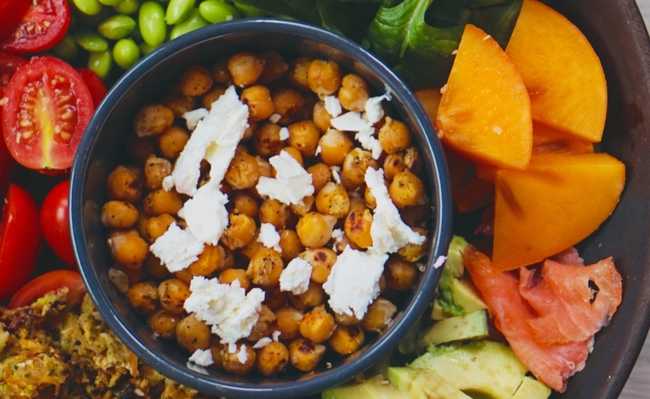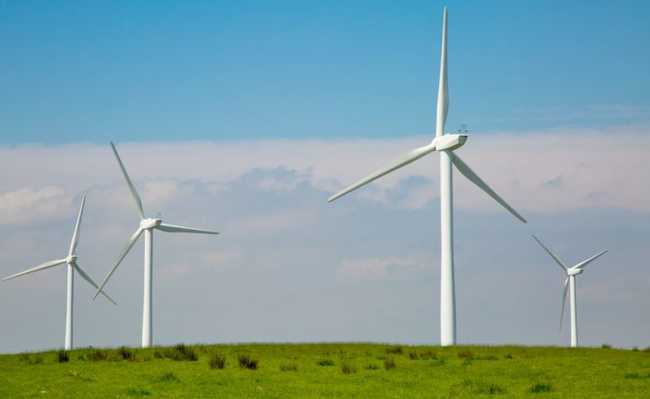Scientifically Proven Chickpea Benefits
Rich in fiber and protein, chickpeas help prevent diabetes, good for digestion and more

Edited and resized image by Charlotte Karlsen is available on Unsplash
Chickpea, also known as gravanço or chicken pea, is a leguminous vegetable belonging to the fabáceas family, very present in the Mediterranean region and in India.
Its nutty flavor and grainy texture pair well with many other foods and ingredients.
As a source of vitamins, minerals and fiber, chickpeas can offer a variety of health benefits, such as improving digestion, helping with weight control and reducing the risk of various diseases. In addition, it is high in protein, making it an excellent substitute for meat in vegetarian and vegan diets.
Check out a list of eight chickpeas benefits based on scientific studies:
1. Rich in nutrients
With just 46 calories per serving (28 grams), chickpeas are capable of providing carbohydrates (67%), proteins, fiber and nutrients. Each serving of chickpea contains:- Calories: 46
- Carbohydrates: 8 grams
- Fiber: 2 grams
- Protein: 3 grams
- Folate: 12% of the RDI (Recommended Daily Intake)
- Iron: 4% of the IDR
- Phosphorus: 5% of the IDR
- Copper: 5% of the IDR
- Manganese: 14% of the IDR
2. Helps to maintain satiety
The protein and fiber in chickpeas help to slow down digestion, which promotes satiety. In addition, protein can increase levels of hormones that reduce appetite in the body (see studies on 1, 2, 3, 4).
One study, which compared the appetite and calorie consumption of 12 women, found that those who ate chickpeas (200 grams) before a meal had less desire to eat again and consumed fewer calories compared to those who ate two slices of bread.
Another study found that individuals who ate an average of 104 grams of chickpeas daily for 12 weeks reported feeling fuller and eating less junk food, compared to the group that did not consume chickpeas.
- What are high fiber foods
- Ten high protein foods
3. It is rich in vegetable protein
Chickpeas are a great source of vegetable protein, being an alternative for those who avoid consuming animals and their derivatives - just as vegans do.
A 28-gram serving of chickpeas provides about three grams of protein.
Chickpea protein helps promote satiety and controlled appetite. It is known to help prevent excessive weight gain, is good for bone health and helps maintain muscle strength (see studies on this: 5, 6, 7, 8).
Some studies have suggested that the quality of protein in chickpeas is better than that of other types of pulses. That's because it contains almost all of the essential amino acids except methionine.
- Vegan philosophy: know and ask your questions
- What are amino acids and what are they for
- Quinoa: benefits, how to make it and what it is for
For this reason they are not a complete source of protein. To make sure you get all the amino acids in your diet, it's important to pair chickpeas with another protein source, such as whole grains or with full protein, such as quinoa.
4. Helps keep weight under control
Chickpea is a food that has the property of promoting satiety in portions that provide few calories.
As already mentioned, the protein in this grain also has the property of helping to increase the production of hormones that reduce appetite.
In one study, those who ate chickpeas regularly were 53% less likely to be obese and had a lower body mass index and waist circumference compared to those who didn't eat chickpeas.
In addition, another analysis found that those who ate at least a portion of pulses, such as chickpeas, lost 25% more weight than those who didn't.
5. Helps control blood sugar levels
Chickpeas have several properties that help control blood sugar levels.
First, because it has a reasonably low glycemic index (an indicator of how quickly your blood sugar rises after eating a food).
- What is the Glycemic Index?
Second, because it is a good source of fiber and protein, both known for their role in regulating blood sugar (see studies about it here: 9, 10).
In one study, 19 people who ate 200 grams of chickpeas had a 21% reduction in blood sugar levels compared to eating whole grains or white bread.
Another 12-week study found that 45 individuals who ate 728 grams of chickpeas per week had a noticeable reduction in their fasting insulin levels, which is an important factor in controlling blood sugar.
In addition, several studies have linked chickpea consumption to reduced risk of various diseases, such as diabetes and heart disease - these effects are often attributed to their blood sugar-lowering effects.
6. Good for digestion
Chickpea fiber is mostly soluble, which means that it mixes with water and forms a gel-like substance in the digestive tract.
In one study, 42 people who ate 104 grams of chickpeas daily for 12 weeks reported improved bowel function, including more frequent bowel movements and smoother stool consistency, compared to when they did not eat chickpeas (see here studies about it: 11, 12).
If you want to improve your digestive health, it's worth trying a little more chickpeas in your diet.
7. Protects against chronic diseases
Chickpeas have several characteristics that can help reduce the risk of chronic disease.
Heart disease
Chickpeas are a source of several minerals, such as magnesium and potassium, which have been studied for their potential to improve heart health (see studies on this here: 13, 14, 15).
- Your brain loves magnesium, but you know it
- Magnesium: what is it for?
In addition, the soluble fiber in chickpeas has been shown to help reduce triglycerides and “bad” LDL cholesterol levels, which can increase the risk of heart disease when elevated (see studies on this: 16, 17 ).
- Does altered cholesterol have symptoms? Know what it is and how to prevent it
In a 12-week study, 45 people who ate 728 grams of chickpeas per week significantly reduced their total cholesterol levels by an average of nearly 16 mg/dL.
Cancer
Including chickpeas in your diet regularly can help reduce your risk of certain types of cancer.
That's because eating chickpeas can promote the body's production of butyrate, a fatty acid that has been studied for its potential to reduce inflammation in colon cells, possibly lowering the risk of colon cancer. : 18, 19).
In addition, chickpeas are a source of saponins, which are compounds from plants that can help prevent the development of certain types of cancer by inhibiting tumor growth (see studies about it here: 20, 21, 22).
It also contains several vitamins and minerals that can reduce the risk of cancer, including B vitamins, which may be responsible for reducing the risk of breast and lung cancer (see studies here: 23, 24, 25).
Diabetes
By helping to control blood sugar levels, chickpeas help prevent and manage diabetes.
- Diabetes: what it is, types and symptoms
The fiber and protein present in this grain help prevent blood sugar levels from rising too quickly after ingestion, which is an important factor in controlling diabetes (see studies on this: 26, 27, 28, 29) .
In addition, its low glycemic index (GI) makes it suitable to help maintain diabetes in people who already have the disease, as it avoids blood sugar spikes (see studies about it here: 30, 31, 32).
They are also a source of several vitamins and minerals that reduce the risk of type 2 diabetes, including magnesium, B-complex vitamins and zinc (see studies here: 33, 34, 35, 36).
8. It's cheap and easy to add to the diet
It's incredibly easy to include chickpeas in your diet. It is versatile and can be used in a variety of dishes such as salads, soups or sandwiches.
It is the main ingredient in hommus, and it goes very well mixed with salt, garlic, oregano and even tahini.
Furthermore, as it is not of animal origin, it is a more sustainable food. Understand this theme better in the articles:
- Intensive animal husbandry for meat consumption impacts the environment and consumer health
- Veganism is the most effective way to save the planet, experts say
- The dangers and cruelty of animal confinement
- Far beyond animal exploitation: cattle raising promotes consumption of natural resources and environmental damage on a stratospheric scale
- Documentary "Cowspiracy" denounces the impacts of the agricultural beef industry
- Reducing red meat consumption is more effective against greenhouse gases than stopping driving, experts say
- Publication links meat consumption to poverty and climate change
- Ghost fishing: the invisible danger of fishing nets
Adapted from Healthline, Medical News Today and Mayo Clinic










